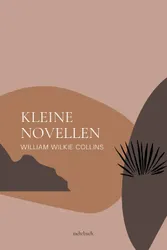William Wilkie Collins's "The Moonstone" is often heralded as the first detective novel in English literature, blending elements of mystery, psychological depth, and social critique. The narrative revolves around the theft of a priceless diamond, whose origin is steeped in colonial history and Indian mystique. Collins's masterful use of multiple narrators creates a rich tapestry of perspectives, allowing readers to explore both the intricacies of the crime and the complexities of human nature. The novel is distinguished by its Victorian setting, characterized by a keen social awareness and an investigation into class, gender, and morality. Collins, a close friend of Charles Dickens and a prominent figure in the Victorian literary scene, drew upon his experiences with the legal system and the moral dilemmas of his time. His personal struggles with health and societal expectations influenced his writing style—characterized by suspense and an acute psychological insight into his characters. The implicit critique of Victorian societal norms in "The Moonstone" reflects Collins's fascination with the darker facets of human experience, lending the narrative a timeless quality. I highly recommend "The Moonstone" to readers seeking an engaging narrative that not only entertains but also provokes thought about morality and the ineffable complexities of the human psyche. Collins's work remains essential for any lover of literature and detective fiction, offering a captivating entry point into the genre.
The Moonstone
Starten Sie noch heute mit diesem Buch für CHF 0
- Hol dir während der Probezeit vollen Zugriff auf alle Bücher in der App
- Keine Verpflichtungen, du kannst jederzeit kündigen
Autor*in:
Sprache:
Englisch






